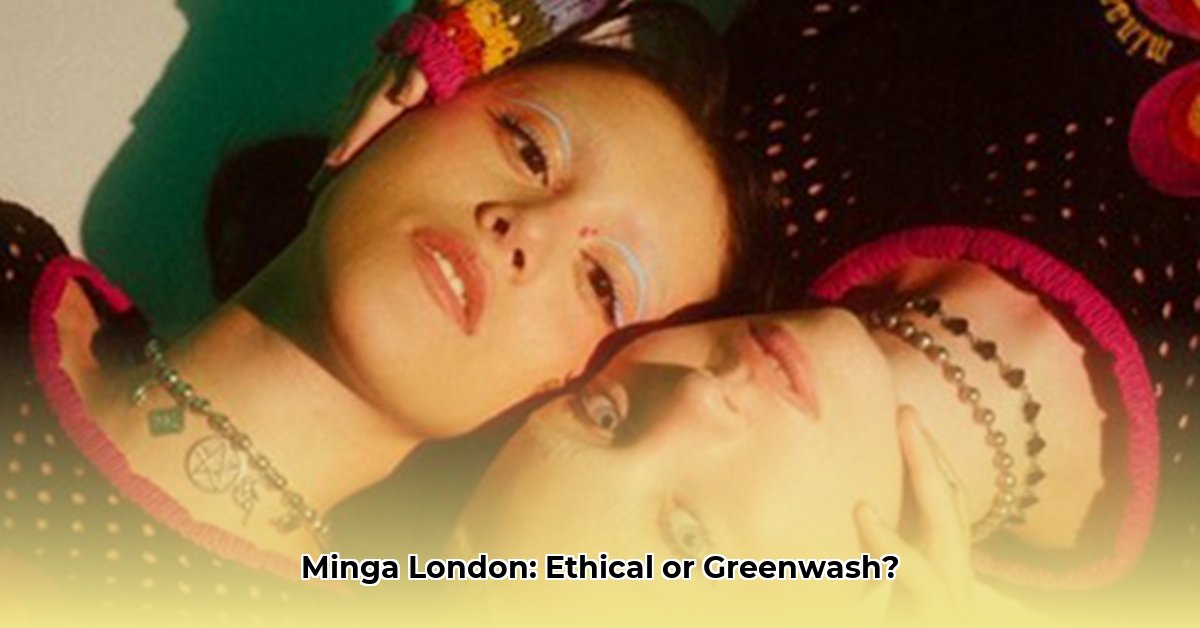
Let's be honest: determining a clothing brand's ethical claims can be challenging. Minga London promotes sustainability and fair practices, but how genuine are these assertions? This report delves into their ethical labor practices, environmental impact, and size-inclusive designs to provide a comprehensive assessment.
Ethical Labor Practices: Transparency Needed
Minga London claims factory ownership in Portugal, promising fair wages and a five-day workweek. However, they lack concrete evidence to support these claims. Detailed wage breakdowns and independent audits are absent. While the intention is commendable, verifiable data is crucial. How do these wages compare to industry standards in Portugal? Are they truly living wages? Without this transparency, assessing their ethical labor practices remains difficult.
Environmental Impact: Room for Significant Improvement
Minga London utilizes locally-sourced fabrics, a positive step. However, their reliance on virgin polyester and cotton—materials with significant environmental burdens—is concerning. The use of recycled and organic materials appears minimal. Furthermore, critical information is missing: the origin of their dyes, the specific chemicals used, and a comprehensive Chemicals Compliance Policy. This lack of detail raises significant questions about their commitment to environmental responsibility.
Sustainability Efforts: A Mixed Bag
Minga London's size-inclusive range is a positive aspect, potentially reducing waste from fast fashion by catering to a broader customer base. Their recycling of unsold stock is also commendable. Yet, again, the scale of these efforts is unknown. Precise figures on recycling volumes and the sourcing of materials like wool remain undisclosed.
What Needs to Happen: Recommendations for Minga London and Consumers
To enhance trust and credibility, Minga London must take decisive action. Consumers also play a vital role.
For Minga London:
Short-Term Goals (Next Year):
- Publish a detailed environmental impact report: This report should transparently disclose carbon footprint, water usage, and waste generation data.
- Share worker wage information and audit results: Transparency is paramount; provide verifiable evidence of fair labor practices.
- Substantially increase the use of recycled and organic materials: Demonstrate a concrete commitment to sustainable materials.
Long-Term Goals (3-5 Years):
- Transition to primarily recycled and organic materials: Make a fundamental shift towards truly sustainable material sourcing.
- Become carbon-neutral: Develop and implement verifiable strategies to minimize and offset carbon emissions.
- Obtain relevant certifications: Seek industry-recognized certifications like GOTS (Global Organic Textile Standard) or OEKO-TEX to demonstrate commitment to ethical and safe practices.
For Consumers:
- Support brands prioritizing ethical labor and environmental responsibility: Make conscious purchasing choices that reflect your values.
- Demand greater transparency: Do not accept vague claims; hold brands accountable for verifiable evidence of sustainability.
- Favor brands actively reducing their environmental footprint: Prioritize brands with transparent and demonstrable efforts towards sustainability.
Conclusion: A Path Towards Greater Ethical Transparency
Is Minga London ethical? The answer is nuanced. While they demonstrate some positive aspects, significant improvements are needed regarding transparency and sustainability. Until they provide comprehensive, verifiable data on their environmental and social impact, a definitive positive assessment remains premature. This report serves as a call to action—for Minga London to embrace complete transparency and for consumers to demand greater accountability from the brands they support. Minga London has the potential to be a truly ethical and sustainable brand, but achieving that requires a significant shift in their current practices and a steadfast commitment to transparency.
How to Improve Minga London's Sustainability Practices: Key Takeaways
- Lack of Transparency: Minga London's sustainability claims lack quantifiable data and independent verification. Generic statements about sustainable practices are insufficient, as they cannot be independently verified.
- Limited Scope: Their sustainability focus appears narrow, primarily concentrating on operational elements while neglecting broader supply chain considerations. A comprehensive lifecycle assessment is needed.
- Need for Measurable Data: Significant improvements are necessary in providing verifiable data, demonstrating their true environmental impact and ethical sourcing practices.
Consumers, regulators, and NGOs must collaborate to demand greater accountability within the fashion industry. Brands must move beyond generic claims and provide solid, verifiable evidence of their commitment to sustainability, which requires a paradigm shift in how they operate and communicate with the public.